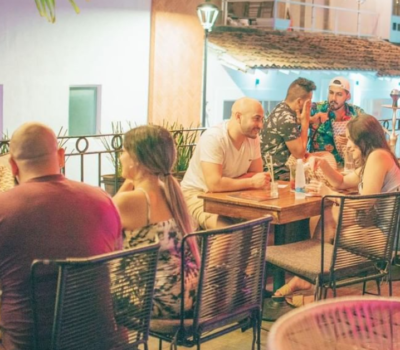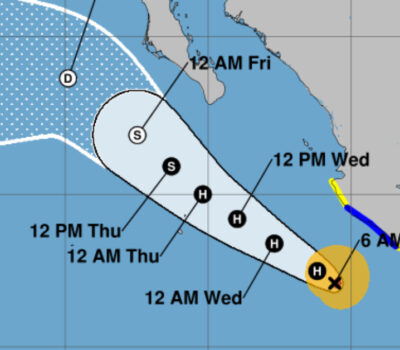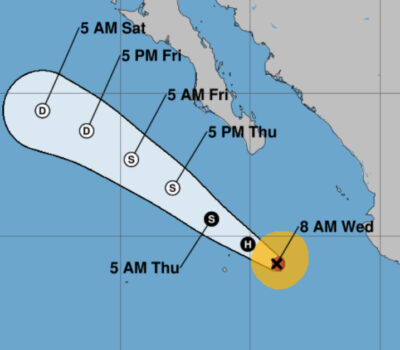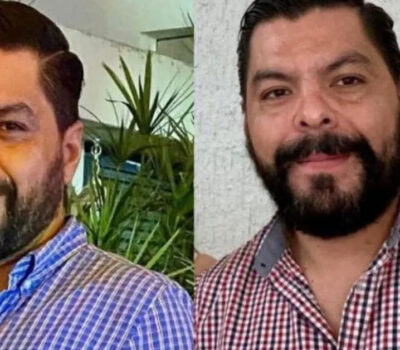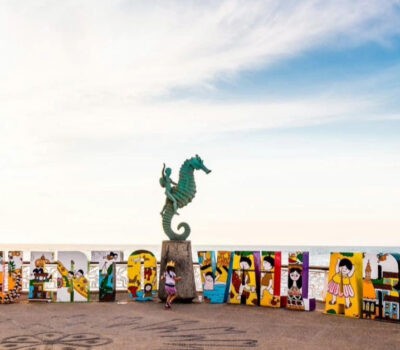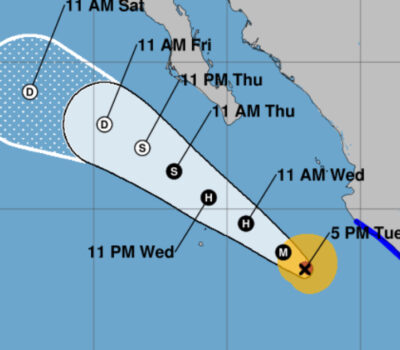They’ve long been an unmissable part of public events in Mexico, from soccer matches to trade fairs: attractive women hired to be greeters or simply as eye candy, sometimes scantily clad in short skirts and high heels or crop-tops and hot pants emblazoned with corporate logos.
Now Mexico City has prohibited the use of models known in local parlance as “edecanes” at events sponsored by the local government, breaking new ground for a country where deeply entrenched gender stereotypes often continue to relegate women to supporting roles in the workforce.
“This job should not exist,” the capital’s mayor, Jose Ramon Amieva, said in announcing the ban last week. “It goes against policies of gender equality.”
In 2014, a group of female politicians organized a forum on the topic that concluded the edecan industry sometimes is a cover for prostitution and that the models face precarious employment conditions. It estimated more than 1 million Mexicans work as hostesses or hosts, most of them in the informal sector.
Online job postings for hostesses offer salaries ranging anywhere from 5,000 pesos ($260) to 30,000 pesos ($1,560) per month, well above the current minimum wage of about $4.60 per day.
While edecanes’ presence at corporate and government events tends to be more demure than elsewhere — think blazers, high heels and slacks or knee-length skirts rather than skin-tight bodysuits — there have been some instances that attracted criticism.
In perhaps the most notorious one, the electoral institute hired a Playboy model to hand out envelopes at the first presidential debate ahead of the 2012 election. Julia Orayen emerged onstage in a tight white dress with a plunging neckline that revealed lots of cleavage, in sharp contrast to the button-up dress shirt and black suit donned by the lone female contender for the presidency, Josefina Vazquez.
And in 2016, the New Alliance party held a campaign event featuring several women in tight white stretch pants and topless save for body paint in the party’s signature turquoise and white.
At Mexico City government events, models have generally been hired to greet guests, pass microphones around for questions or simply smile onstage alongside mostly male speakers.
Indra Rubio, who coordinates the gender justice program for Oxfam in Mexico, called the capital’s model ban a “small but very important step” for a country that’s “still macho.”
“We need to question as a society: Why is a woman’s body seen as an object?” Rubio said. “This places the woman always at a disadvantage, if her participation in the workforce is subject to her physical appearance.”
Hector Garcia, a booker at the Agencia de Modelos y Edecanes in Mexico City, called it “dignified work” and said the industry’s reputation has been damaged by others who work as escorts but call themselves edecanes or models. He said the mayor’s characterization of the profession “is morally harmful and mainly stigmatizes edecanes all across Mexico.”
Model and edecan Mariel Guerrero Castano echoed that sentiment.
“He should not try to mix what other agencies or other groups, organizations are calling edecanes or models when really they are escorts or prostitution. … Then there are the legitimate agencies that are really being stained by what these supposed agencies are doing.”
The measure is part of a broader city initiative to give women greater responsibility in government. Amieva has committed to having women make up at least half the participants on expert panels at events and ensuring they get equal speaking time. Citywide, he said, public officials will be told to encourage professional growth for female employees based on their abilities and experience, not their appearance. Public servants who fail to comply may be fined.
Mexican institutions have made notable strides this year to incorporate more women in leadership positions. Nearly half the representatives in the incoming Congress will be female. Mexico City is about to get its first elected woman mayor in Claudia Sheinbaum, who won office in July. President-elect Andres Manuel Lopez Obrador, who takes office in December, has chosen women to fill half his Cabinet positions.
Olga Sanchez, who is slated to run the Interior Ministry under Lopez Obrador, vowed on Saturday to change the “patriarchal system” so that men take on more domestic chores and children have more rights.
But as recently as last week, the Mexican Health Ministry organized a discussion on breastfeeding that was widely mocked for its all-male panel. And an initiative called “Not Without Women Mx” that urges men to boycott forums that omit female experts from panels was launched without a single woman sitting at the lead table.
Women’s rights advocates argue that the widespread use of models at political and corporate events commodifies women as ornaments and perpetuates macho attitudes that put women at risk for gender-based violence. The World Health Organization has declared sexual violence an epidemic in Latin America with one out of three women over the age of 15 having experienced sexual assault.
Mexico City, which has a relatively large middle-class and college-educated populace compared with many other parts of the country, has been governed by leftist mayors for two decades and has frequently been at the progressive vanguard on social issues. There is a mixed track record on those changes being replicated in other, more conservative parts of the country, however.
The city legalized same-sex marriage in 2010, and that has since become law in a dozen other states and recognized as a right by the Supreme Court. But after the capital legalized first-trimester abortions on demand in 2007, over half the states passed right-to-life bills declaring that life begins at conception.
Rubio said she would like to see the model ban extend to other local governments and also be adopted at the federal level, arguing that taxpayers’ money should be spent to empower women, not objectify them.
“Women aren’t seen as having rights, as equals,” she said, “and I think this generates violence against women.”
They’ve long been an unmissable part of public events in Mexico, from soccer matches to trade fairs: attractive women hired to be greeters or . . .




